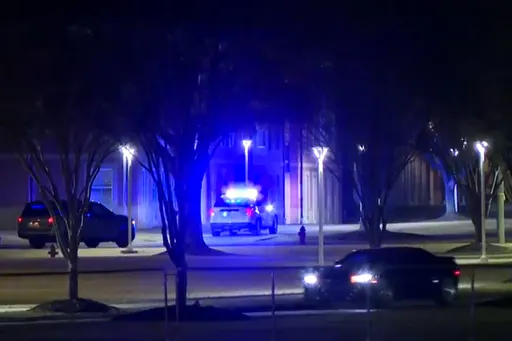On Monday, Amnesty International called on the US to stop the sales of 18 sophisticated armed MQ-9B aerial drones to the UAE, citing the disastrous military record of the oil-rich country in Libya and Yemen.
Rights groups have gathered compelling evidence against both the UAE and its ally, Saudi Arabia, from the battlegrounds of Libya and Yemen, holding the two gulf nations responsible for what account for 'war crimes.'
Amnesty’s advocacy director for the Middle East and North Africa, Philippe Nassif, said that if the US continued to supply heavy duty weapons to the UAE, it risked “complicity in likely war crimes in Yemen.”
“The startling fact that the United States government continues its unflinching support of providing weapons that risk adding to the devastating toll of Yemeni civilians unlawfully killed and injured by US-made weapons should shake to the core every person living in this country,” Nassif said.
“These US drones could be responsible for UAE attacks that violate international humanitarian law and kill, as well as injure, thousands of Yemeni civilians already bearing the brunt of one of the world’s most devastating humanitarian catastrophes,” Nassif added.
Since Saudi Arabia and the UAE-led coalition air strikes began in March 2015, Amnesty International has visited and investigated dozens of targeted sites in eight governorates and repeatedly found remnants of munitions manufactured in the United States.
Previously, CNN's investigation revealed that Saudi Arabia and its coalition partners have transferred American-made weapons to Al Qaeda-linked fighters, hardline Salafi militias, and other factions waging war in Yemen, in violation of their agreements with the US.
On the other hand, the weapons fell into the hands of Iran-backed rebels fighting against the coalition for control of the country, causing the transfer of some sensitive American military technology to Tehran which would potentially endanger the lives of US troops in other conflict zones likewise the civilians.
According to local commanders on the ground and experts who spoke to CNN, Riyadh and Abu Dhabi, who are the main partners in the wars, used US-manufactured weapons as a form of currency to buy the loyalties of militias or tribes, bolster chosen armed actors, and influence the complex political landscape were used.
Handing off this military equipment to third parties means that the Saudi-led coalition is breaking the terms of its arms sales with the US, according to the Department of Defense. Following CNN’s presented findings, a US defence official previously confirmed there was an ongoing investigation into the issue.
As Saudi Arabia and the UAE rely on the US weapons to conduct their war, both Amnesty’s report and CNN’s revelations have the potential to raise questions about whether the US has lost control over a key ally presiding over one of the most horrific wars of the past decade, and whether Saudi Arabia is responsible enough to be allowed to continue buying the sophisticated arms and fighting hardware.
According to the Yemen Data Project, since 2015, the coalition has carried out more than 20,000 attacks - one third of those struck non-military sites. Recently, the US State Department notified Congress of the planned sale of $2.9bn which came after a previous notification of a potential sale of F-35 fighter jets to the UAE.
Since Abu Dhabi has started backing the Southern Transitional Council, which has been fighting against the forces loyal to exiled President Abd Rabbuh Mansour Hadi, over 100,000 people have been killed and 4 million have been displaced. At least 80 percent of the country's population, which accounts for 29 million, is dependent on aid for survival.
The UN called Yemen’s case as the "world's worst humanitarian crisis" as heavy artillery and air strikes have hampered access to health care and increased pressure on the few facilities that are still functioning.
According to Amnesty International, the UAE has also used armed drones in Libya, which is considered to be in violation of a longstanding UN arms embargo.
Referring to Libya, Amnesty said that the drones have been used to target civilian homes and health facilities, including field hospitals and ambulances.
As it is known, Abu Dhabi uses Chinese-made Wing Loong drones for combat and also supplies them to warlord Khalifa Haftar's forces in the eastern parts of the country.
According to the BBC, a drone operated by the UAE targeted and killed 26 unarmed cadets at a military academy in Libya's capital Tripoli in January 2020.























